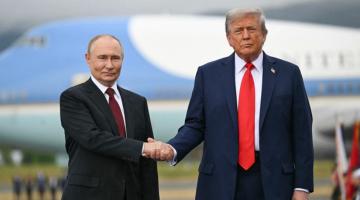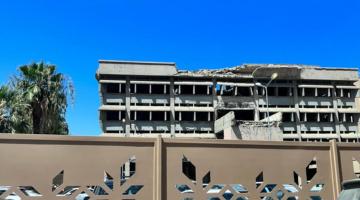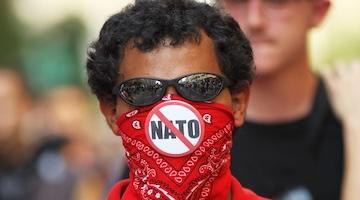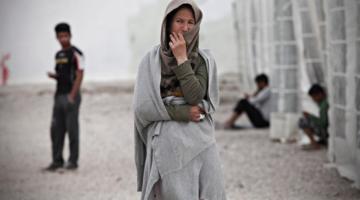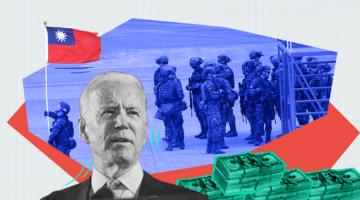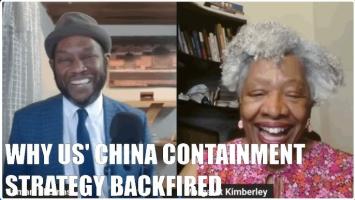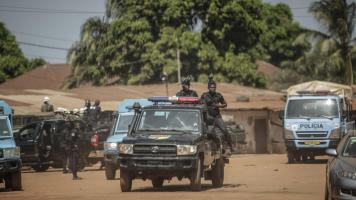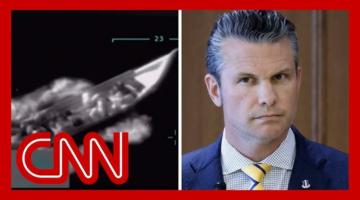Afghans for a Better Tomorrow discuss the current state of Afghanistan and their work organizing against U.S. imperialism.
Originally published in Black Alliance for Peace.
With the U.S. empire in violent decay – exposing its depravity through the genocide of the Palestinian people – it is clear that U.S. imperialism poses the greatest threat to humanity. The Black Alliance for Peace Solidarity Network’s Asia/Pacific Team continues to highlight how the U.S./EU/NATO strategic interests have wreaked havoc on Afghanistan and other nations more broadly across the Asia/Pacific region, while also emphasizing the myriad of ways colonized and oppressed populations and their diasporas resist. This month’s Afghanistan News Update includes an interview with Afghans for a Better Tomorrow.
Afghans for a Better Tomorrow is a U.S.-based Afghan diaspora community and advocacy organization, rooted in anti-militarist values and shaped by the harmful actions of U.S. foreign policy. Through campaigns to unfreeze Afghanistan’s frozen assets and stop U.S- and Pakistan-led deportations of Afghan refugees, members work to bring about systemic change in the United States and beyond to ensure all Afghans have lives of safety, dignity, and freedom. More resources created by Afghans for a Better Tomorrow can be found here, and information on joining can be found here.
How did Afghans for a Better Tomorrow come together as an organization and how has your organizing evolved throughout the years?
We started as a response to the United State’s failed foreign policy of militarism, foreign policy and imperialism. As directly impacted members of the Afghan-American community, we first saw the effects of the United State’s role in the Cold War in Afghanistan as our parents’ generation fled the Soviet invasion and fighting by mujahideen rebels. Then, we watched Afghanistan be occupied by U.S./ NATO forces, followed by years of corruption, support for warlords and civilian deaths that reinforced and pushed the conflict between the Taliban and the Afghan republic to the brink. As the Trump-led withdrawal talks took shape, we started advocating for Afghan women to be at the negotiating table, but all Afghans were sidelined. Then, once President Biden announced his withdrawal, we felt that a surge of newly arrived Afghans fleeing Taliban rule would be next. That is exactly what happened, with us and our community doing the critical work of welcoming them. Now, we are a growing grassroots, community-led organization that supports newly arrived Afghans seeking asylum at our border and New York City while simultaneously holding elected officials of both parties responsible for the harm they’ve done to Afghanistan -- and continue to do through economic sanctions and otherwise. We are also proud to be building the future leaders of tomorrow through our Emerging Leaders Fellowship.
Afghans for a Better Tomorrow’s vision is “An equitable, peaceful future where Afghans and other marginalized working-class immigrant communities are uplifted for a better tomorrow.” What kinds of connections do you think are important to draw between the experiences of Afghans and other colonized and oppressed people?
Once we started organizing with new Afghan arrivals on the ground, we quickly saw how the issues of militarism, police brutality, racial inequality and capitalism intersect. For those folks, there was no social safety net and very little support, they faced daunting and expensive housing prospects. We saw police shoot a young Afghan refugee child who was having a mental crisis while we witnessed newly arrived Afghans being exploited economically as they are cheap labor in an inflationary economy. This is right after a 20-year war in which defense contractors hugely profited at the expense of Afghan lives. These are the same machinations that other immigrants, refugees and communities of color suffer from, whether it’s the genocide in Palestine or the school-to-military pipeline in Black communities. Afghans are often erased, devalued or tokenized, a phenomenon other marginalized communities are all too familiar with.
After the U.S./NATO withdrawal from Afghanistan in 2021, the Afghan people have been forced to live under severe sanctions and an international asset freeze led by the United States. Many argue these measures constitute forms of collective punishment and crimes against humanity. What impact has this had on you or people in your family and community in Afghanistan or the diaspora?
Afghan-Americans have a strong connection to Afghanistan, a country of 38 million-plus people, more than half of whom don’t know where their next meal is coming from. Our Afghan diaspora leads humanitarian aid and development projects back home and we have undeniably strong ties to Afghanistan. The asset freeze and sanctions regime has served as a deadly double-punch, meaning Afghans cannot access their own money to buy food in their markets as the international community ships food packages from neighboring countries. Afghan banks and businesses are cut off from the rest of the world, deepening the suffering. The simple act of sending money is deeply complex and could mean violating U.S. federal law. This harsh policy of economic strangulation has not only been ineffective and harmful; it’s deeply immoral and hurts the average Afghan person the most. The humanitarian and economic crisis in Afghanistan has created severe shortages in food and humanitarian access, causing widespread food insecurity and malnutrition, impacting maternal mortality rates, increasing the spread of treatable diseases, and preventing essential care for life-threatening illnesses such as cancer.
What do you see as the greatest barriers to the return of Afghanistan’s sovereign assets and the lifting of international sanctions?
The U.S. government is the greatest barrier to ending the suffering of the Afghan people. We often talk to U.S. officials who claim to have no influence in the process and outcomes of the Afghan frozen funds. However, evidence points to the contrary. It’s the United States that has enacted these policies in the first place and they can reverse them. The Taliban, too, holds responsibility as they have repressed their own population brutally and have erased almost all women from the economic workforce. We must think of this economic strangulation within the context of what the United States has tried to enforce in places like Iran, North Korea, Venezuela and elsewhere where populations have experienced collective punishment.
Most people in the Global North only associate Afghanistan with the violence wrought by 40 years of U.S./NATO-led war, ignoring the country's rich and diverse people, history and culture. What do you think is important for people to know about Afghanistan and its people?
Afghanistan is an extremely diverse country, religiously, ethnically, linguistically and culturally. The corporate mainstream media often flattens the view of Afghans, seeing them as one-dimensional, either as translators for the U.S. military or fighters for the Taliban. The truth lies obviously elsewhere, as Afghans too, are complex and layered. Outside of conflict, Afghanistan shows tremendous promise through its beauty, vast mountain range and historic cities. In another world, Afghanistan would be a top destination for tourists interested in snowboarding or those interested in exploring its rich history.
ADDITIONAL READINGS AND RESOURCES
Sanctions Watch
April 30, 2024 by Pedro Labayen Herrera and Michael Gant for CEPR
Pressure grows for the United States to unfreeze Afghanistan’s sovereign assets and rethink its approach to the de facto Taliban government. Even the World Bank, the international financial institution closely aligned with U.S. interests, found that “sanctions, frozen assets, [and] banking disruptions” have trapped half the population in poverty and forced 15 million into food insecurity.
“Afghans Fear Life on Both Sides of the Durand Line”
May 22, 2024 by Somaiyah Hafeez and Ali M. Latifi for The New Humanitarian
“The New Humanitarian recently reported from both sides of the Durand Line – the colonial era border drawn in the 1890s to demarcate then-British India from Afghanistan – speaking to Afghans being pressured or forced to return to their home country and to those trying to stay in Pakistan amid a growing climate of fear.”
“Tourist Numbers Up in Post-War Afghanistan”
April 2, 2024 by Al Jazeera
Contrary to claims that the 20-year U.S./NATO occupation brought safety and security to Afghanistan, the number of foreign tourists visiting Afghanistan rose 120 percent year on year in 2023, reaching nearly 5,200.
“Afghan Resistance Leader Warns Attack on American soil ‘Not a Matter of if but When’”
May 1, 2024 by Arpan Rai for the Independent
The leader of the U.S./NATO-aligned National Resistance Front of Afghanistan (NRF) repeated white supremacist talking points that Afghanistan is a breeding ground for terrorism. Like in the build-up to the U.S./NATO-led invasion of Afghanistan in 2001, Massoud's comments
mirror those of U.S. officials who were attempting to justify the use of the country as a launching pad for the so-called “Global War on Terror.”

